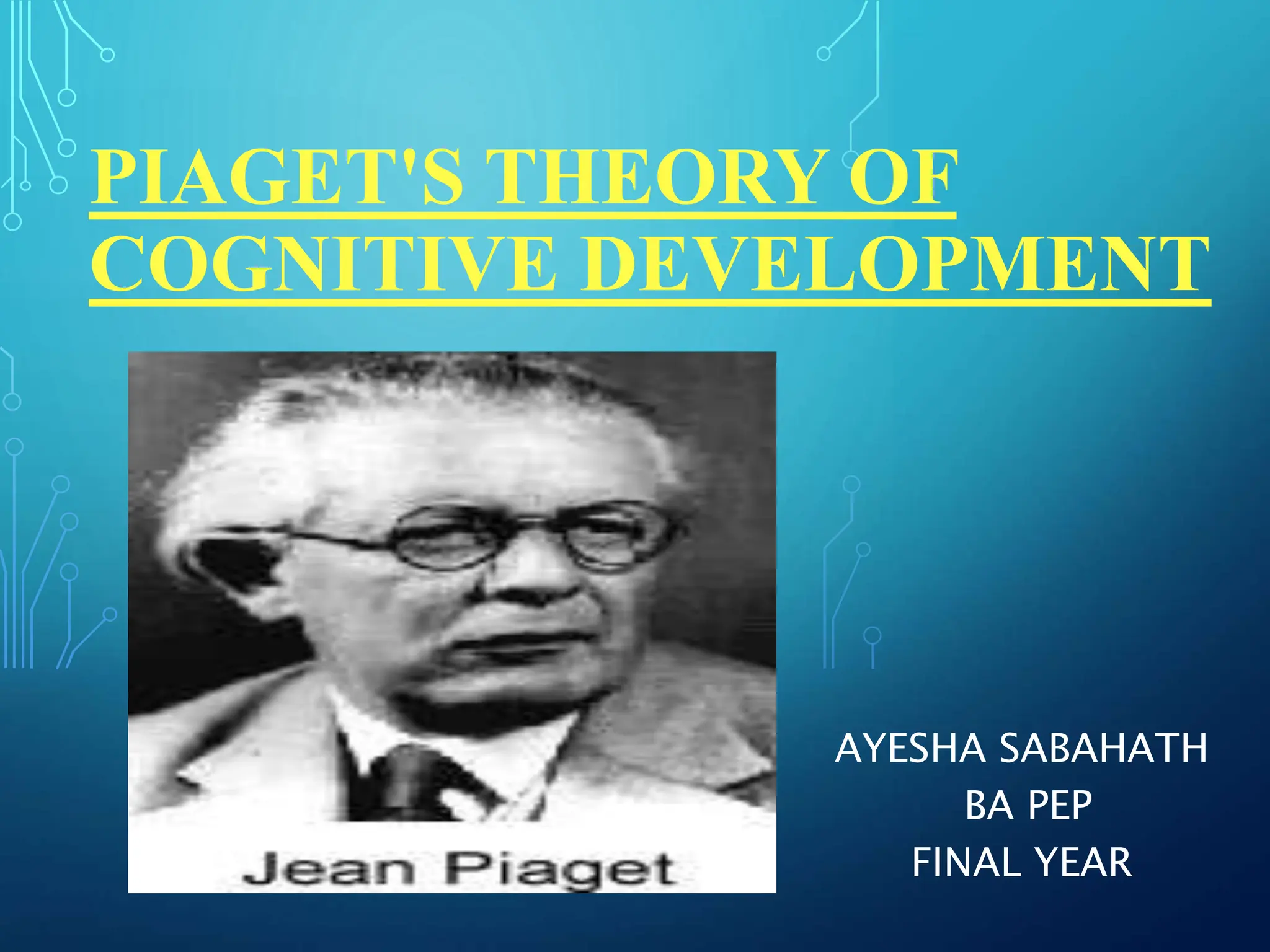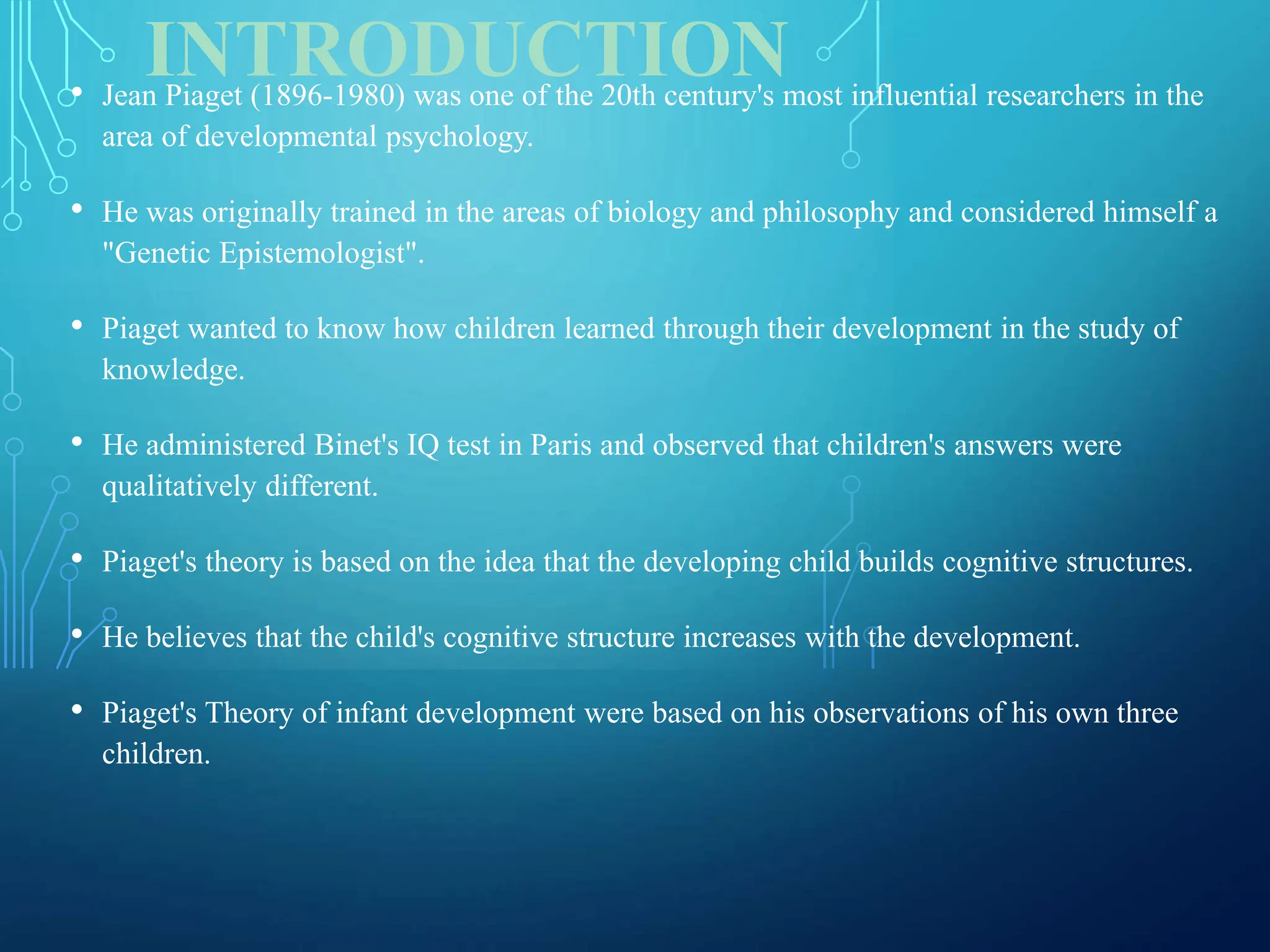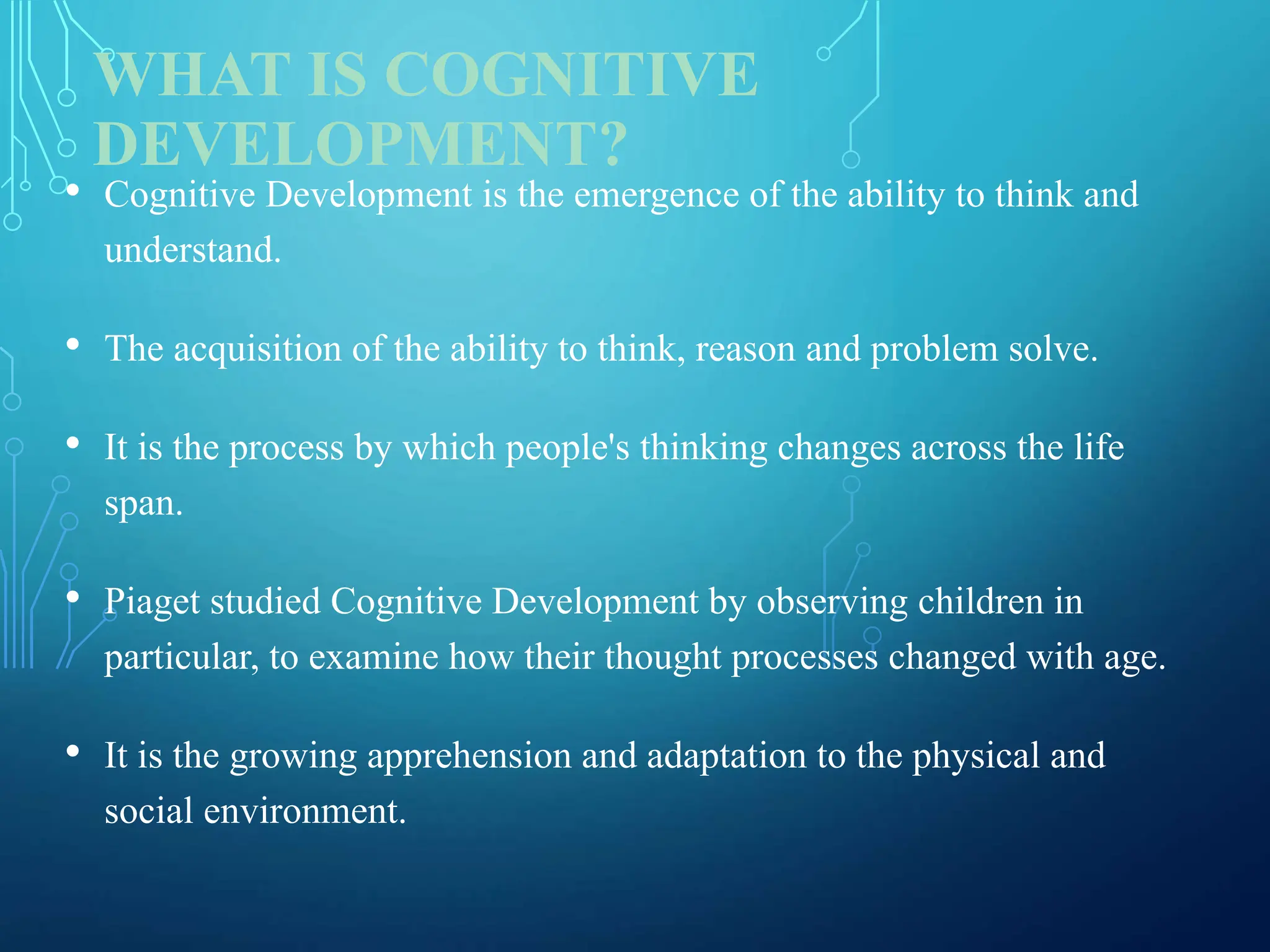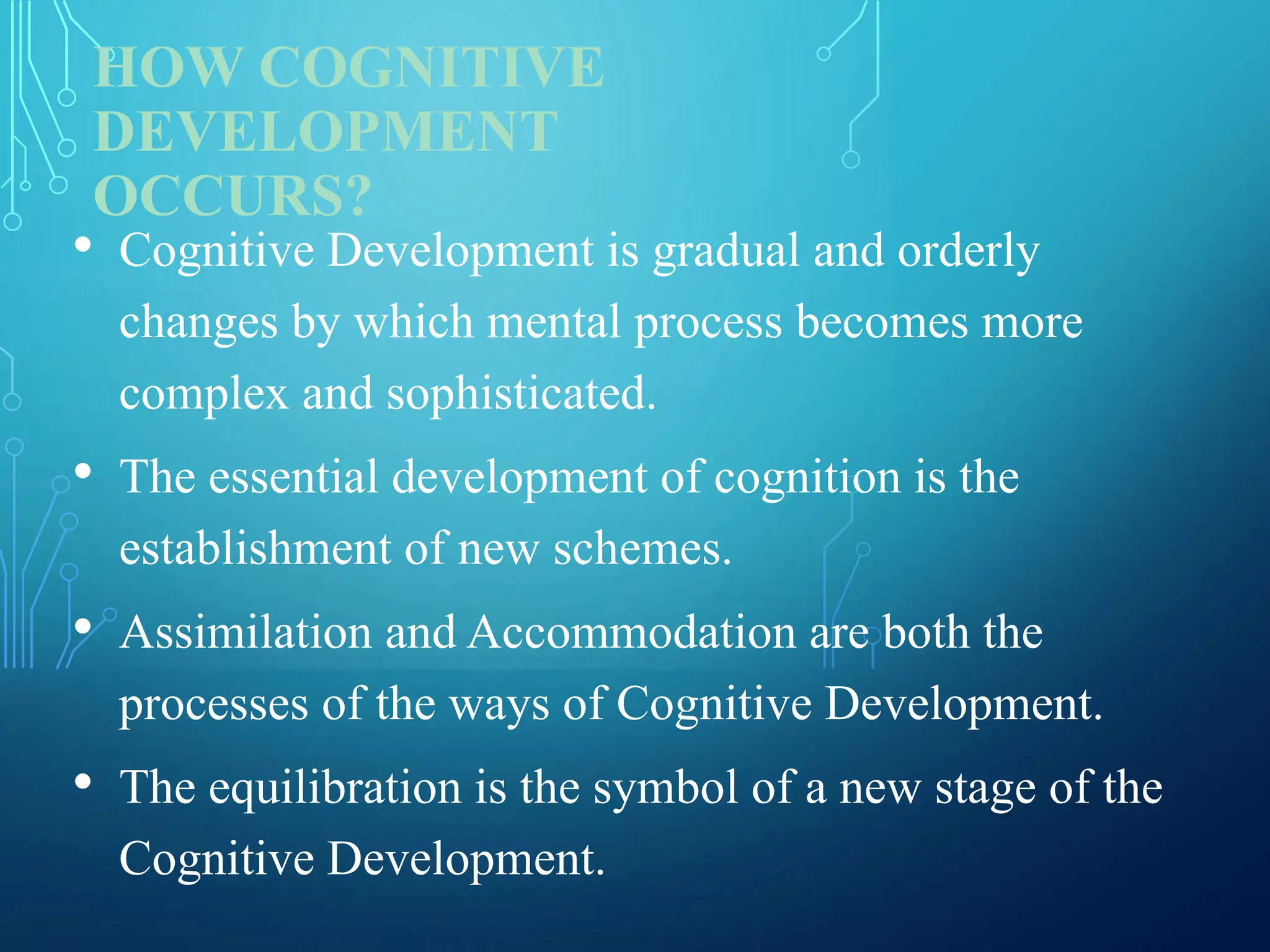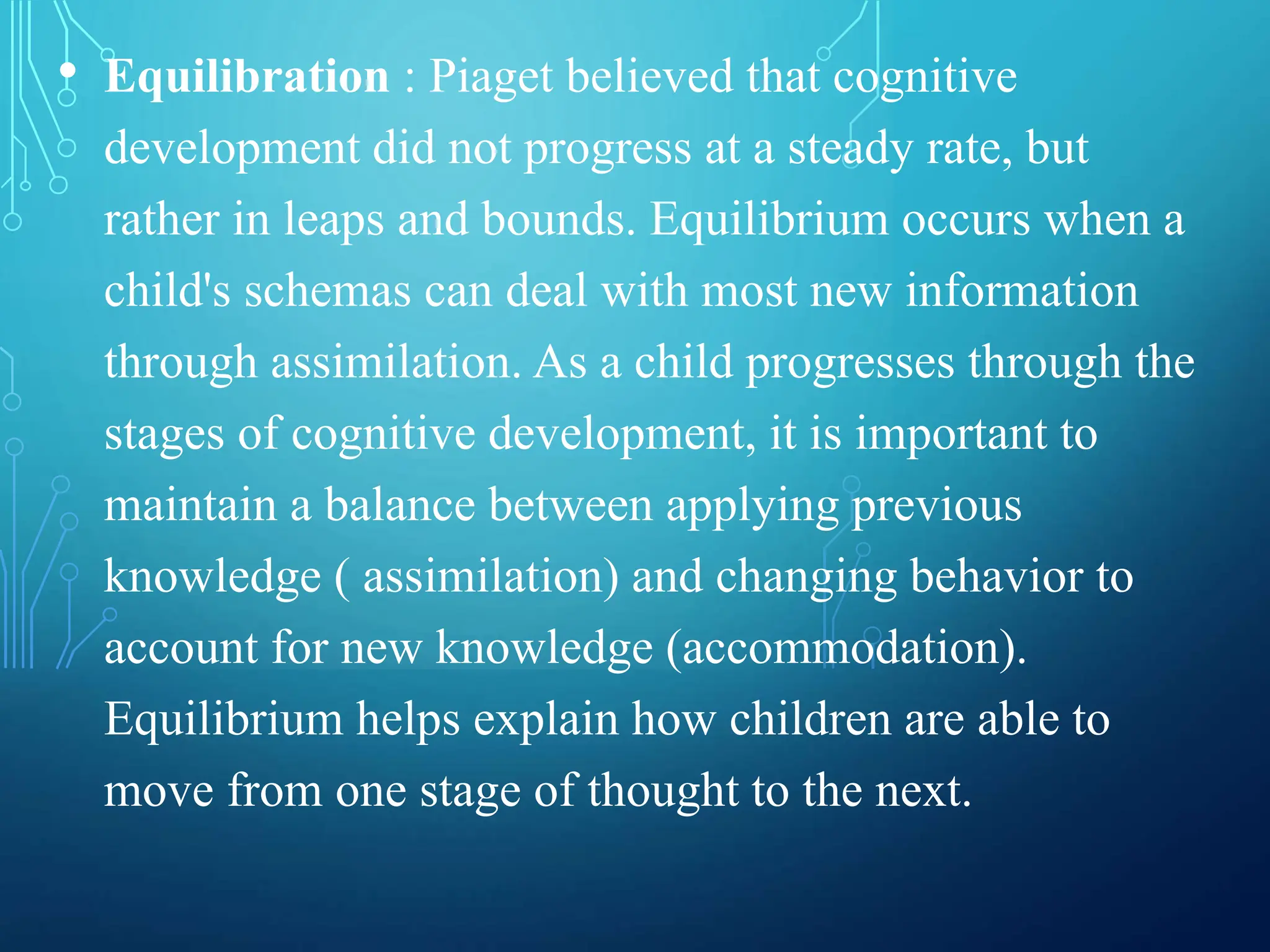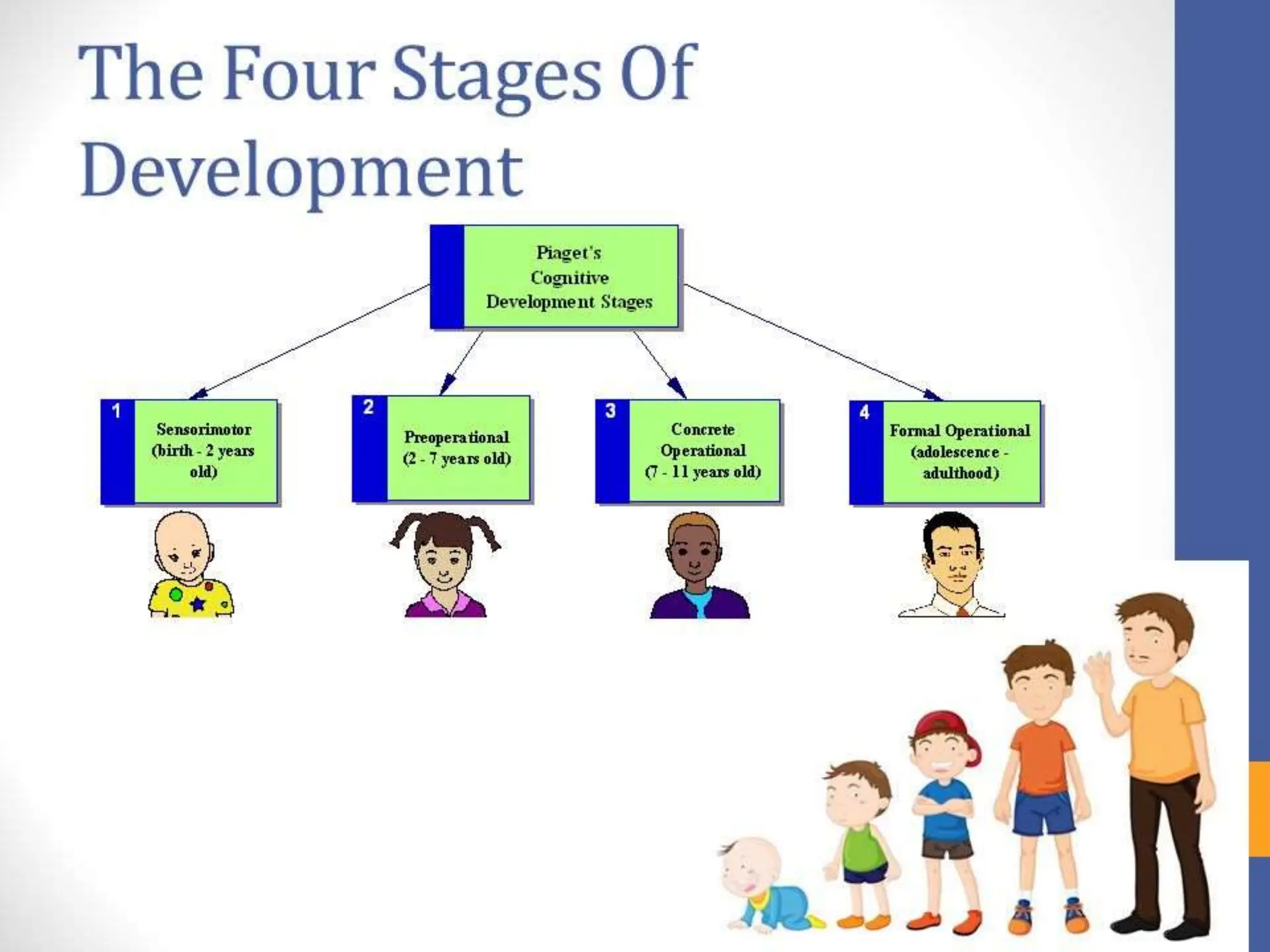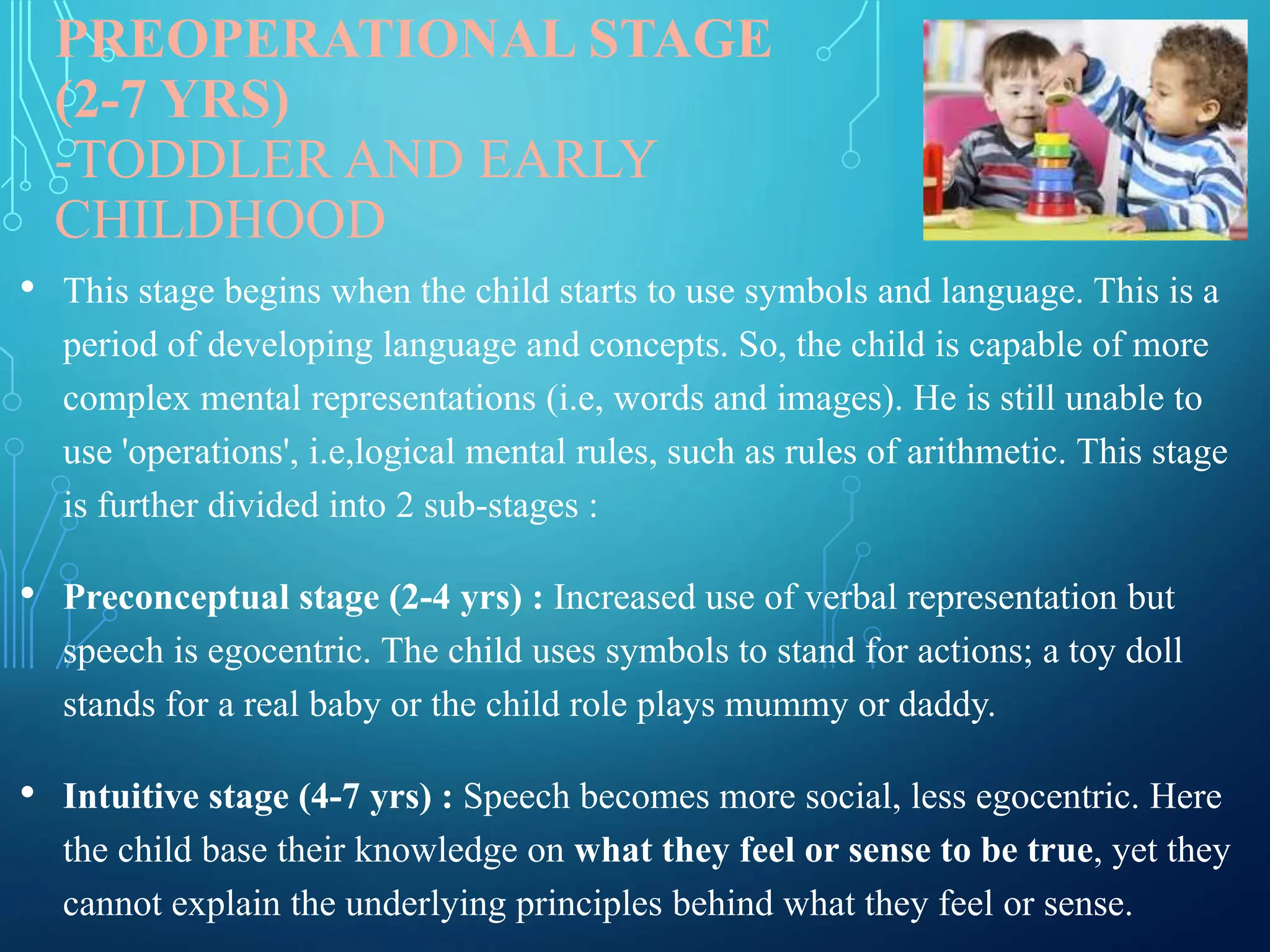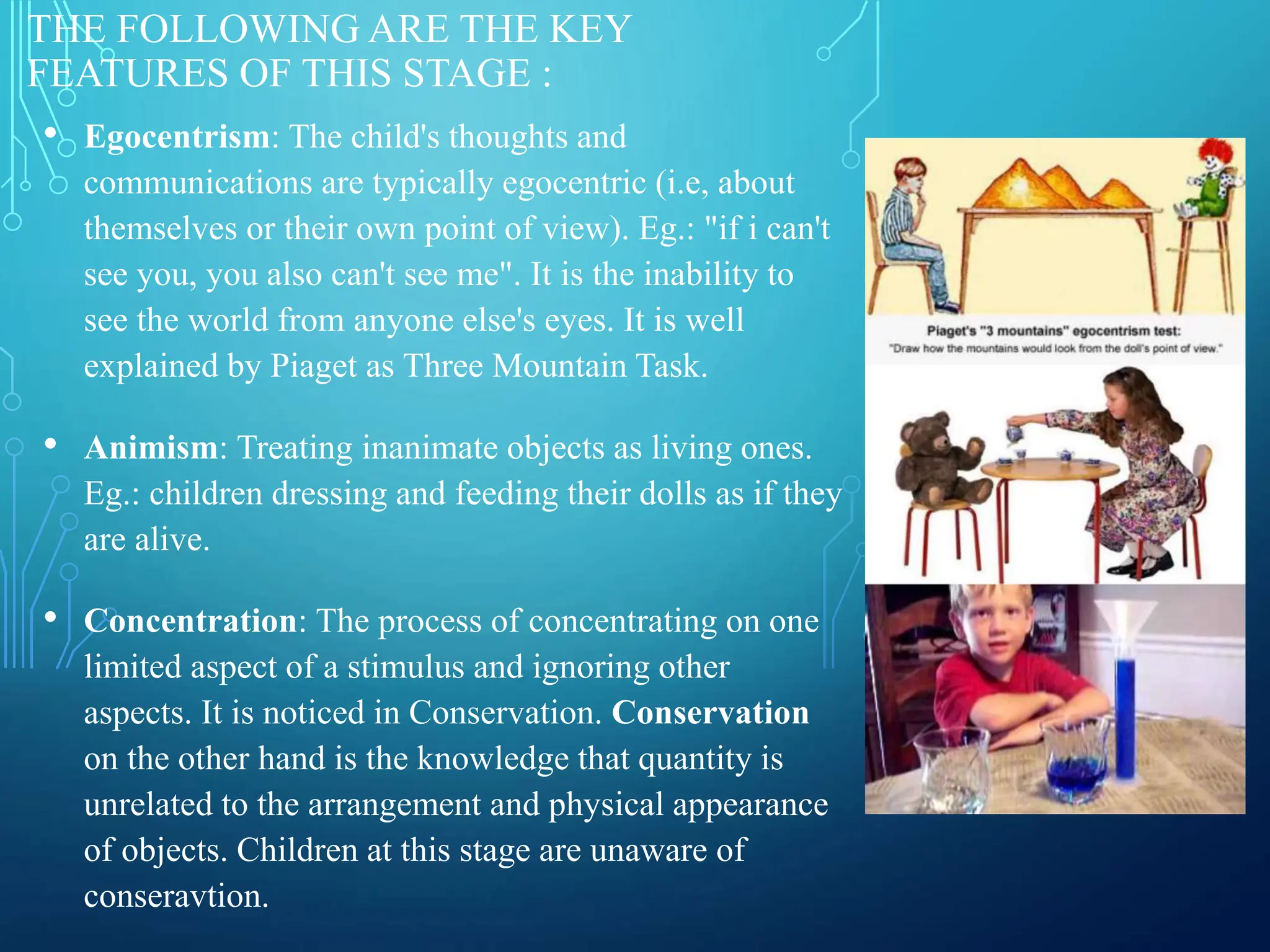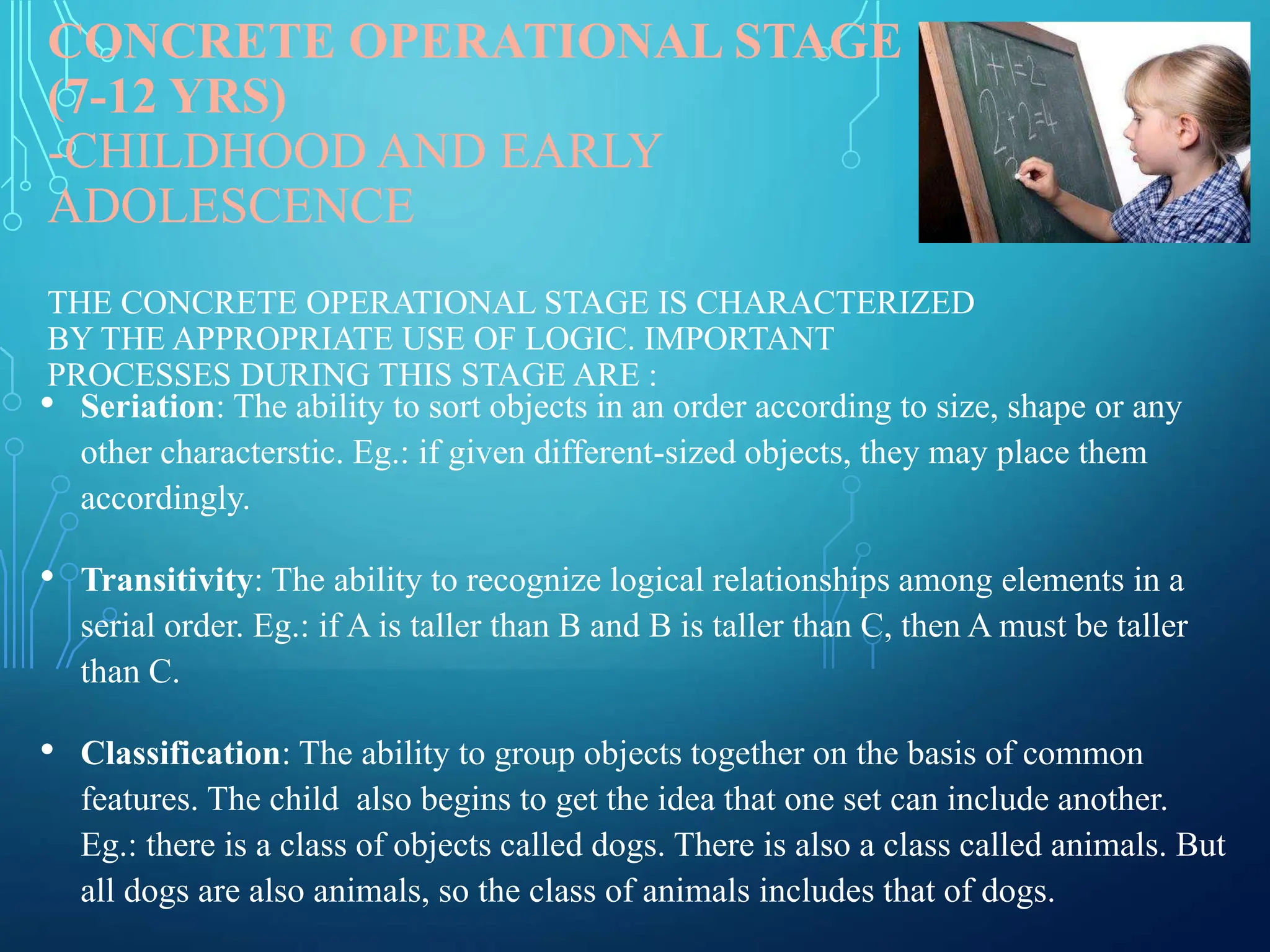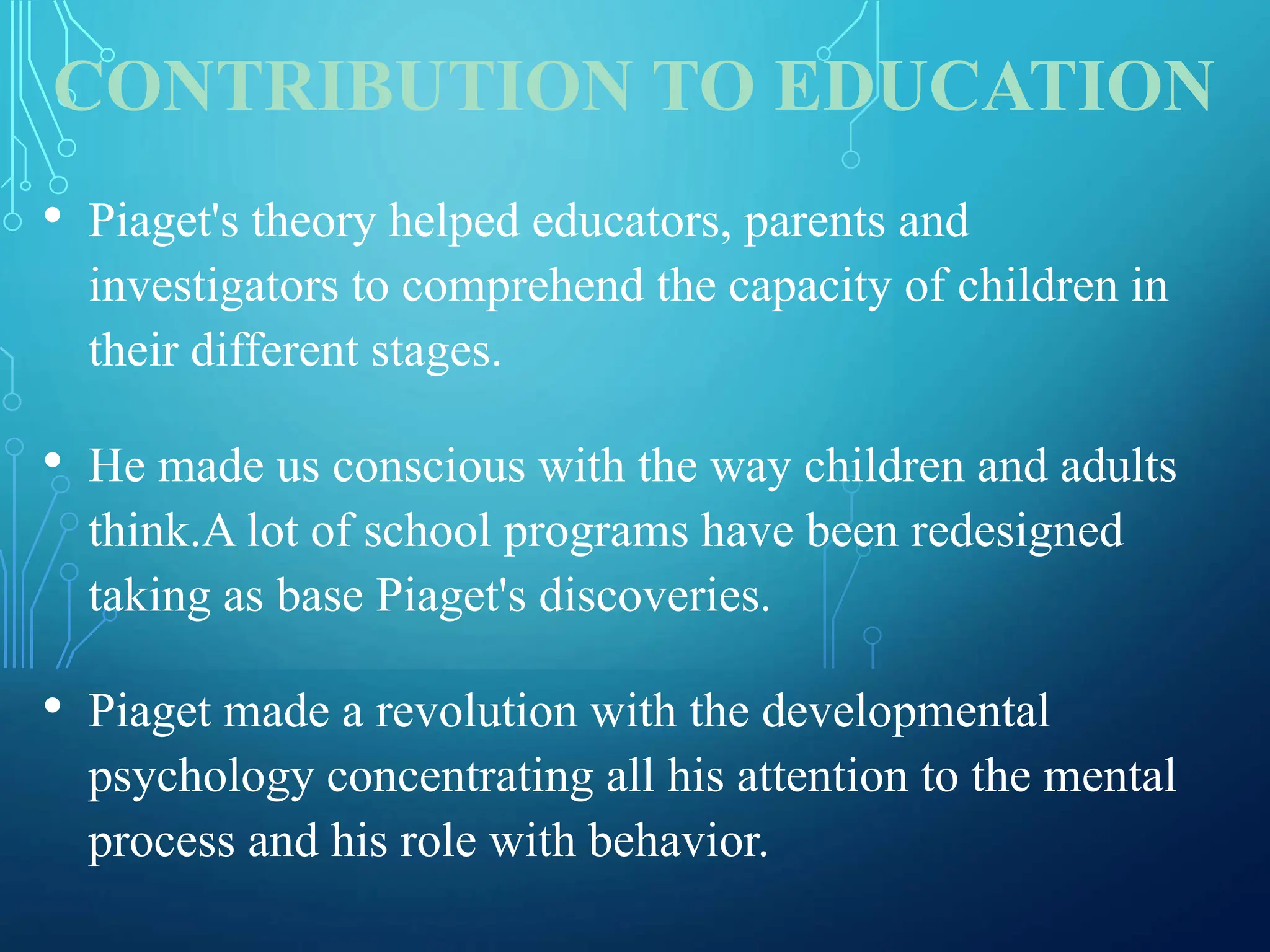Jean Piaget was a Swiss developmental psychologist who studied cognitive development in children. He believed that children's cognitive structures become more complex through the processes of assimilation and accommodation. Piaget identified 4 stages of cognitive development: sensorimotor, preoperational, concrete operational, and formal operational. His theory emphasized that children are active learners who construct knowledge through hands-on experiences with objects and interactions with others. Piaget's work influenced how educators approach teaching methods and curriculum based on a child's developmental level.
